We might be going on and on about creating content for humans, not for search engines, but this should truly be your utmost priority when producing content. In fact, when applying a user-centric approach to your content marketing strategy and focusing on E-E-A-T in SEO, you are also improving Google rankings.
That being said, shortcuts that improve Google rankings might bring you results faster, but that doesn’t guarantee that they will be long-lasting. After all, your aim when creating should be to offer your audience informative and valuable content, not to rank high in search engines. Therefore, E-E-A-T should be treated as a priority.
Do you want to find out more about the acronym that will completely upgrade your content marketing game? Then, keep reading about E-E-A-T in SEO!
What Is E-E-A-T for SEO?
E-E-A-T has been around for some time, having first been published in Google’s 2014 Search Quality Guidelines. Yet, “What is E-E-A-T for SEO?” is still a pertinent question that leaves many confused.
First of all, E-E-A-T stands for Experience, Expertise, Authoritativeness, and Trustworthiness. So, according to Google, these are factors that should be given importance:
- The expertise of the main content’s creator
- The authoritativeness of the main content’s creator, the main content, and the website
- The trustworthiness of the main content’s creator, the main content, and the website
While these factors should be taken into consideration for all websites, E-E-A-T is fundamental for Your Money or Your Life (YMYL) sites. So, when it comes to legal, medical, or financial websites, your website’s expertise, authoritativeness, and trustworthiness are more important than ever.
After all, one of the advantages of Google is that everyone can produce and publish content.
However, this is a double-edged sword, especially when people make decisions based on the information that they discover on Google. So, this is one of the reasons why not only the content is analyzed but also the creator and the website as a whole. For example, when it comes to financial advice, a bank’s website will have more authority than a finance student’s blog.
In fact, as Forbes has highlighted, to establish E-E-A-T’s guidelines, “Google has thousands of actual humans manually reviewing various webpages and then reporting their quality analysis to Google”. So, while the opinions of these search-quality raters don’t directly impact Google rankings, they influence Google’s algorithm.
Besides, when determining the overall Page Quality rating, E–A-T is one of the most important factors that are taken into consideration.
Expertise
Defined as “expert skill or knowledge in a particular field”, this factor applies to you if you have experience and knowledge in a field and could, consequently, be classified as an expert.
With the expertise factor, Google is analyzing the quality of the content, not the one of the website. So, it would be helpful to include expert opinions in your content or to have your content written by a thought leader in the field.
In fact, according to section 2.6.1 of the Search Quality Rater Guidelines, when it comes to YML topics, the reputation of a website or content creator ought to be judged by what experts in the field say.
However, in section 3.2, Google also acknowledges that some topics require less formal expertise, so it also values “everyday expertise”. For example, in some cases such as when people share personal experiences, tips, or helpful reviews, formal education is not a must as these normal people could be considered experts in the fields they are writing about due to their life experience.
Authoritativeness
For your content to be authoritative, it needs to be “able to be trusted as being accurate or true”. So, this factor is all about proving your website’s, your content, and your content’s creator’s authority in the field.
How can this be done? By analyzing backlinks from other authoritative sources, brand mentions on forums, reviews, and more. In a way, the authoritativeness factor is essentially about reputation.
In fact, as section 4.4 of the Search Quality Rater Guidelines underlines, no website with a persuasive negative reputation can deserve a high rating.
Trustworthiness
This factor may seem to closely resemble the first two, but there are still some major differences. Forbes exemplifies this by stating that one article may appeal to the expertise factor if it is written by an expert in the field, but if your website generally has poor content, it still wouldn’t appeal to the trustworthiness factor of E-E-A-T.
Similarly, trustworthiness is closely associated with reputation in the guidelines, hence users can usually trust information from websites with a positive reputation.
How to Enhance E-E-A-T?
As Google’s Gary Illyes has stated, there is no such thing as E-E-A-T score because E-E-A-T consists of a lot of other algorithms, “baby algorithms, that are made up of in the Google algorithm”. Besides, there are likely several algorithms for every letter in E-E-A-T.
Therefore, if you want to enhance E-E-A-T, you need to improve your website as a whole.
1. Earn Quality Backlinks
Quality raters will look into what people are saying about your business online. Reviews, recommendations from experts, forum discussions, and even news articles, can all be regarded as trustworthy information about your website.
You should set up Google Alerts for anything related to your brand (authors, products, services, or company name) so you can actively monitor the online discussion about your brand. Also, don’t forget to reach out to those that mention you and thank them!
However, with Google getting better and better at determining which mentions are truly valuable and trustworthy, you should prioritize earning mentions from authoritative websites such as Wikipedia, well-known websites in your niche, or well-established news outlets.
2. Add Expert Content
Would you take advice from a person whose expertise you aren’t sure of? You should keep in mind that as good as your content might be, people may not consider it if it isn’t written by an expert.
This isn’t necessarily the case for topics that are not YMYL, but even then, you should pick a team that can create high-quality and insightful content. If you want to improve your expertise, you could also invest in guest blogging. For example, if you have a cooking blog, you could ask a famous chef to do a guest blog for you.
Moreover, to gain your visitors’ trust, you should also include your authors’ credentials along with the content they produce so that they understand that your team is experienced in the field they are writing about. Besides, according to the guidelines, websites should contain information about who is in charge of the website as well as about who created the content.
3. Include Contact Details
This is not just the case for YML websites, as all the sites that require and handle private or sensitive data ought to have adequate contact information.
Including extensive contact details, especially in these cases, is just as important as adding information about the brand or the creator.
As the guidelines suggest, a good way to go about it would be to think of the type of information that people would need to feel safe when using your website.
Want A High-Quality Website? Prioritize E-E-A-T in SEO!
Your content may be top-notch, but if your website isn’t trustworthy… then all of your efforts are useless. By investing in E-E-A-T for SEO, your chances of ranking higher in Google as well as of gaining your audience’s trust increase.
Not sure where to start with E-E-A-T in SEO? The team at CadenceSEO is here to take your content marketing to the next level! Book a free consultation with us today!






